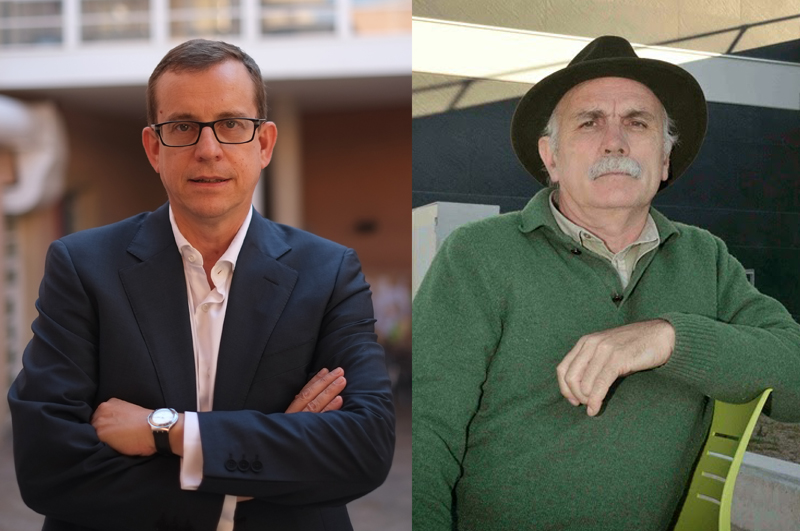Press notes 04/12/2018
Jordi Salas and Eudald Carbonell, among the most highly cited researchers in the world
The list "Highly Cited Researchers 2018", published by Clarivate Analytics, regards these URV professors as being among the most influential in the world because of the impact of their research

The list "Highly Cited Researchers 2018", published by Clarivate Analytics, regards these URV professors as being among the most influential in the world because of the impact of their research
The list of the most influential scientists in their field is compiled by considering the articles they have written that have been published and cited during the period 2006–2016. It is based on data from the Essential Science Indicators (ESI).
The full list for 2018 includes 4,058 researchers from 21 scientific fields. Of these, 40 work in Catalonia. This year, the URV professors Jordi Salas-Salvadó and Eudald Carbonell are among these 40 researchers. Salas-Salvadó has been placed in the inter-disciplinary field, a new category that has been added this year to identify those researchers who have an influence on different areas of research. For his part, Carbonell is a leading figure in the social sciences.
Jordi Salas is a professor of Nutrition and Bromatology at the URV and director of the URV’s Unit of Human Nutrition. Salas is the Clinical Director of Nutrition of the Internal Medicine Service at the Sant Joan University Hospital in Reus, the principal investigator of the network CIBERobn and the deputy director of the Pere Virgili Institute for Health Research. He is also a member of the Network of Experts of the Public Health Agency of Catalonia, an organisation that depends on the Catalan Government and which plays an important role in assessing food risks. It produces scientific reports in this field, defines the areas that require research to be done and coordinates the task of the groups of experts who are involved in risk assessment.
Eudald Carbonell is the URV’s chair of Prehistory and the principal investigator of the Group of Human Autoecology of the Quaternary. He is also a researcher at the Catalan Institute of Human Paleoecology and Social Evolution (IPHES), a cross-disciplinary institute that works at the main sites in the world to determine the origin of the first human populations. It is at the forefront of research into human evolution. Co-director of the Atapuerca project and general director of the Atapuerca Foundation, he is one of the founders of the Museum of Human Evolution in Burgos.
In total, the list contains 4,058 scientists. The first place goes to the United States, with 2,639 authors. In second place is the United Kingdom, with 546, and then China, with 482. As far as institutions are concerned, the first place is for the University of Harvard, with 186 authors, followed by the National Institutes of Health of the United States, with 148, and the University of Stanford, with 100. The first European institution is the German Max Planck Institute, which is in fourth place with 76 researchers.
